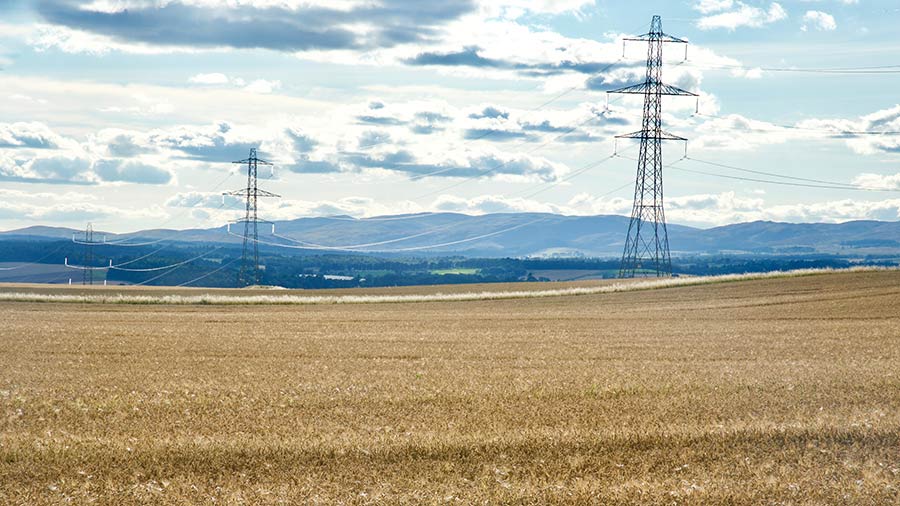SSEN power lines plan ‘a threat’ to Scottish farming
 © Hugh O'Neill/Adobe Stock
© Hugh O'Neill/Adobe Stock Controversial plans for new power lines passing across prime seed potato growing land represent a significant threat to the Scottish farming industry, say rural and energy advisers.
A proposed 400kV pylon line connecting Fiddes, south of Stonehaven, and Tealing, near Dundee, will run through some of Scotland’s best agricultural land.
See also: Farmers Question Time shines spotlight on Scots politics
The 57m pylons will impede the efficient use of large machinery typically employed in arable areas, and the high-voltage system could inhibit the use of irrigation equipment that is vital for high-value seed potato production, according to specialist property adviser Galbraith.
In a series of roadshows in early May, Scottish and Southern Electricity Networks (SSEN) Transmission, the energy transmission and distribution company, unveiled plans to install pylons on prime agricultural land through the Howe of the Mearns under its Spittal-Loch Buidhe-Beauly 400kV project.
SSEN obtained planning consent to reinforce the existing 275kV overhead line connecting the substations at Blackhillock, Keith, Kintore and Peterhead, to enable operation at an increased voltage of 400kV, by replacing the insulators and fittings on the existing towers, as well as reconfiguring a short section of the overhead line to divert it out of the Keith substation.
The 66-mile route, taking in landscapes immortalised by the writer Lewis Grassic Gibbon in novels such as Sunset Song, was selected to avoid more challenging terrain, as well as for economic reasons.
But Galbraith says the onshore electricity network introduces a significant threat to production of potatoes and oilseed rape – key crops in this area.
Construction traffic also carries a significant biosecurity threat of spreading diseases such as eelworm and potato cyst nematode (PCN) along the length of the route, it adds.
“It is not clear why SSEN have taken this route rather than alternatives,” said Tom Stewart, a partner at Galbraith.
“There is normally a presumption against development on prime agricultural land.”
SSEN says the upgrade is needed to reduce the UK’s reliance on global wholesale gas and to help deliver UK and Scottish government 2030 renewable energy targets.
The company aims to submit its plans for consent in late 2024 and start construction in 2026.
